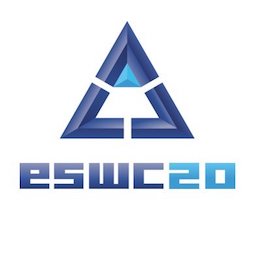We are very pleased to announce that our group got five papers (three papers in the main tracks and two in the Cleopatra Workshop) accepted for presentation at ESWC2020 (European Semantic Web Conference 2020). The ESWC is a major venue for discussing the latest scientific results and technology innovations around semantic technologies. Building on its past success, ESWC is seeking to broaden its focus to span other relevant related research areas in which Web semantics plays an important role.
Here are the pre-prints of the papers with their abstracts that have been accepted in the main tracks:
- A Knowledge Graph for Industry 4.0
By Sebastian R. Bader, Irlan Grangel-Gonzalez, Priyanka Nanjappa, Maria-Esther Vidal, and Maria Maleshkova.Abstract
One of the most crucial tasks for today’s knowledge workers is to get and retain a thorough overview on the latest state of the art. Especially in dynamic and evolving domains, the amount of relevant sources is constantly increasing, updating and overruling previous methods and approaches. For instance, the digital transformation of manufacturing systems, called Industry 4.0, currently faces an overwhelming amount of standardization efforts and reference initiatives, resulting in a sophisticated information environment.We propose a structured dataset in the form of a semantically annotated knowledge graph for Industry 4.0 related standards, norms and reference frameworks. The graph provides a Linked Data-conform collection of annotated, classified reference guidelines supporting newcomers and experts alike in understanding how to implement Industry 4.0 systems. We illustrate the suitability of the graph for various use cases, its already existing applications, present the maintenance process and evaluate its quality. -
VQuAnDa: Verbalization QUestion Answering DAtaset
By Endri Kacupaj, Hamid Zafar, Jens Lehmann and Maria Maleshkova.Abstract
Question Answering (QA) systems over Knowledge Graphs (KGs) aim to provide a concise answer to a given natural language question. Despite the significant evolution of QA methods over the past years, there are still some core lines of work, which are lagging behind. This is especially true for methods and datasets that support the verbalization of answers in natural language. Specifically, to the best of our knowledge, none of the existing Question Answering datasets provide any verbalization data for the question-query pairs. Hence, we aim to fill this gap by providing the first QA dataset VQuAnDa that includes the verbalization of each answer. We base VQuAnDa on a commonly used large-scale QA dataset — LC-QuAD, in order to support compatibility and continuity of previous work. We complement the dataset with baseline scores for measuring future training and evaluation work, by using a set of standard sequence to sequence models and sharing the results of the experiments. This resource empowers researchers to train and evaluate a variety of models to generate answer verbalizations. -
Embedding-based Recommendations on Scholarly Knowledge Graphs
By Mojtaba Nayyeri, Sahar Vahdati, Xiaotian Zhou, Hamed Shariat Yazdi, and Jens Lehmann.Abstract
The increasing availability of scholarly metadata in the form of Knowledge Graphs (KG) offers opportunities for studying the structure of scholarly communication and evolution of science. Such KGs build the foundation for knowledge-driven tasks e.g., link discovery, prediction and entity classification which allow to provide recommendation services. knowledge graph embedding (KGE) models have been investigated for such knowledge-driven tasks in different application domains. One of the applications of KGE models is to provide link predictions, which can also be viewed as a foundation for recommendation service, e.g.~high confidence “co-author” links in a scholarly knowledge graph can be seen as suggested collaborations. In this paper, KGEs are reconciled with a specific loss function (Soft Margin) and examined with respect to their performance for co-authorship link prediction task on scholarly KGs. The results show a significant improvement in the accuracy of the experimented KGE models on the considered scholarly KGs using this specific loss.TransE with Soft Margin (TransE-SM) obtains a score of 79.5% Hits@10 for co-authorship link prediction task while the original TransE obtains 77.2%, on the same task. In terms of accuracy and Hits@10, TransE-SM also outperforms other state-of-the-art embedding models such as ComplEx, ConvE and RotatE in this setting.The predicted co-authorship links have been validated by evaluating the profile of scholars.
Here are the pre-prints of the papers with their abstracts that have been accepted in the Cleopatra Workshop:
-
Training Multimodal Systems for Classification with Multiple Objectives
By Jason Armitage, Shramana Thakur, Rishi Tripathi, Jens Lehmann and Maria Maleshkova.Abstract
We learn about the world from a diverse range of sensory information. Automated systems lack this ability and are confined to processing information presented in only a single format. Adapting architectures to learn from multiple modalities creates the potential to learn rich representations – but current systems only deliver marginal improvements on unimodal approaches. Neural networks learn sampling noise during training with the result that performance on unseen data is degraded. This research introduces a second objective over the multimodal fusion process learned with variational inference. Regularisation methods are implemented in the inner training loop to control variance and the modular structure stabilises performance as additional neurons are added to layers. This framework is evaluated on a multilabel classification task with textual and visual inputs to demonstrate the potential for multiple objectives and probabilistic methods to lower variance and improve generalisation.

